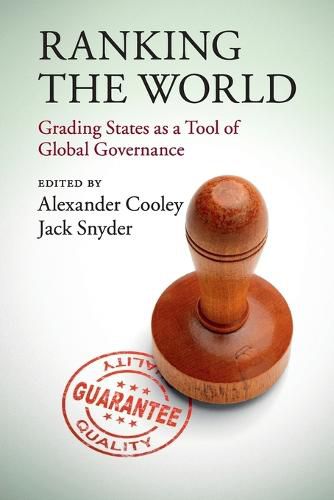Readings Newsletter
Become a Readings Member to make your shopping experience even easier.
Sign in or sign up for free!
You’re not far away from qualifying for FREE standard shipping within Australia
You’ve qualified for FREE standard shipping within Australia
The cart is loading…






Over the last decade, international rankings have emerged as a critical tool used by international actors engaged in global governance. State practices and performance are now judged by a number of high-profile indices, including assessments of their levels of corruption, quality of democracy, creditworthiness, media freedom, and business environment. However, these rankings always carry value judgments, methodological choices, and implicit political agendas. This volume expertly addresses the important analytical, normative, and policy issues associated with the contemporary practice of ‘grading states’. The chapters explore how rankings affect our perceptions of state performance, how states react to being ranked, why some rankings exert more global influence than others, and how states have come to strategize and respond to these public judgments. The book also critically examines how treating state rankings like popular consumer choice indices may actually lead policymakers to internalize questionable normative assumptions and lead to poorer, not improved, public policy outcomes.
$9.00 standard shipping within Australia
FREE standard shipping within Australia for orders over $100.00
Express & International shipping calculated at checkout
Over the last decade, international rankings have emerged as a critical tool used by international actors engaged in global governance. State practices and performance are now judged by a number of high-profile indices, including assessments of their levels of corruption, quality of democracy, creditworthiness, media freedom, and business environment. However, these rankings always carry value judgments, methodological choices, and implicit political agendas. This volume expertly addresses the important analytical, normative, and policy issues associated with the contemporary practice of ‘grading states’. The chapters explore how rankings affect our perceptions of state performance, how states react to being ranked, why some rankings exert more global influence than others, and how states have come to strategize and respond to these public judgments. The book also critically examines how treating state rankings like popular consumer choice indices may actually lead policymakers to internalize questionable normative assumptions and lead to poorer, not improved, public policy outcomes.